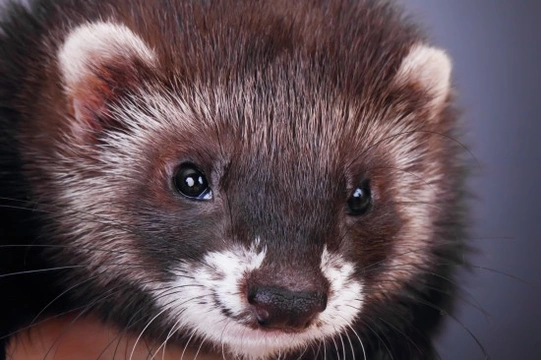
Do Ferrets Smell? Tips for a Fresh-Smelling Pet
A great many people who might otherwise love to have a pet ferret don’t even get as far as the research stage of ferret ownership, as they automatically discount it as a bad idea out of fear that their new pet is going to be very pongy! This is one of the main concerns that potential owners raise about ferret ownership, and it is certainly true that in some cases, ferrets do have a rather pungent and distinctive musky aroma all of their own. However, ferrets do not have to be smelly, and particularly pet ferrets that live within the home rather than in outdoor hutches smell very little, if at all, and so you should not automatically assume that these wily, lively little animals are going to stink out your house!
Read on to learn more about ferrets, odours, and how to manage them.
What is the ferret smell?
The natural aroma of the wild ferret colony is a very pronounced musky smell, which is produced by scent glands in the skin and particularly, around the ferret’s back end. It is much more pronounced in male ferrets than females, but any group of ferrets living together will soon come to take on the same scent due to their close living quarters and constant contact with each other.
I’ve never noticed the ferret smell...
If you have spent time around pet ferrets and found that they do not smell noticeably or at all, this is likely due to a combination of two factors. First of all, keeping the cage clean, and the ferrets themselves clean and groomed goes great strides towards reducing smells, but also, most pet ferrets (particularly males) are neutered, which also removes a great deal of the associated glandular scent marking trait that un-neutered ferrets possess.
Neutering for male ferrets can take the form of either castration or vasectomy, both of which greatly mute the distinctive ferret odour. While castration is the easier surgery to perform, some ferret owners prefer to have their ferrets vasectomised if they also keep female ferrets, as this means that the female ferrets will not need to be spayed. Unspayed female ferrets will come into heat now and then, and at this time, they must be able to mate, or they will literally waste away and die. Keeping them with a male ferret that has had a vasectomy means that the male can still mate with the unspayed females, but without producing baby ferrets as a result!
It is also an option to spay female ferrets too, whether kept in single sex groups or with males, to remove the breeding urge.
Keeping your ferrets and their cage from smelling
Even after neutering, ferrets will still smell bad if you do not keep them, and their housing, clean and in good condition!
First of all, clean out your ferret’s litter tray every day, and empty out the litter, disinfect the tray and use fresh litter in it every week. Ferrets do not appreciate a smelly living environment, and a dirty litter tray will soon make the whole cage and everything around it smell too. You may also want to use a ferret-safe litter deodoriser in the litter tray too, but do not use this as an excuse to clean out the litter less regularly!
In terms of the cage itself, on a weekly basis you should remove everything from the cage (including the ferrets!) and clean down the inside and the outside of it, disinfecting it all and removing dirt and debris. Replace disposable bedding for fresh, and wash your ferret’s toys and blankets and other bedding in the washing machine.
Not only will this keep the cage from building up a basic lived-in ferret smell, but it will also help to keep your ferrets smelling fresh too!
Grooming ferrets
Keeping the cage and bedding thoroughly clean will do nothing to keep odours at bay if your ferrets themselves do not smell good!
One aspect of ferret grooming and care that is often overlooked is keeping your pet’s ears clean, as ferrets build up earwax at a fast rate, which has an unpleasant smell all of its own. Keep your ferret’s ears clean with a suitable cleaning solution and cotton buds, taking care never to poke anything down into your ferret’s delicate eardrums.
You may also need to bathe your ferrets from time to time too if they start developing a distinctive funky smell, but take care not to bathe them too often, as this can strip the natural oils from the coat and lead to an overproduction of oils and their associated scent in compensation for this. Only use specially designed ferret shampoos (and conditioners) as these retain the pH balance of the coat and are not overly harsh.



